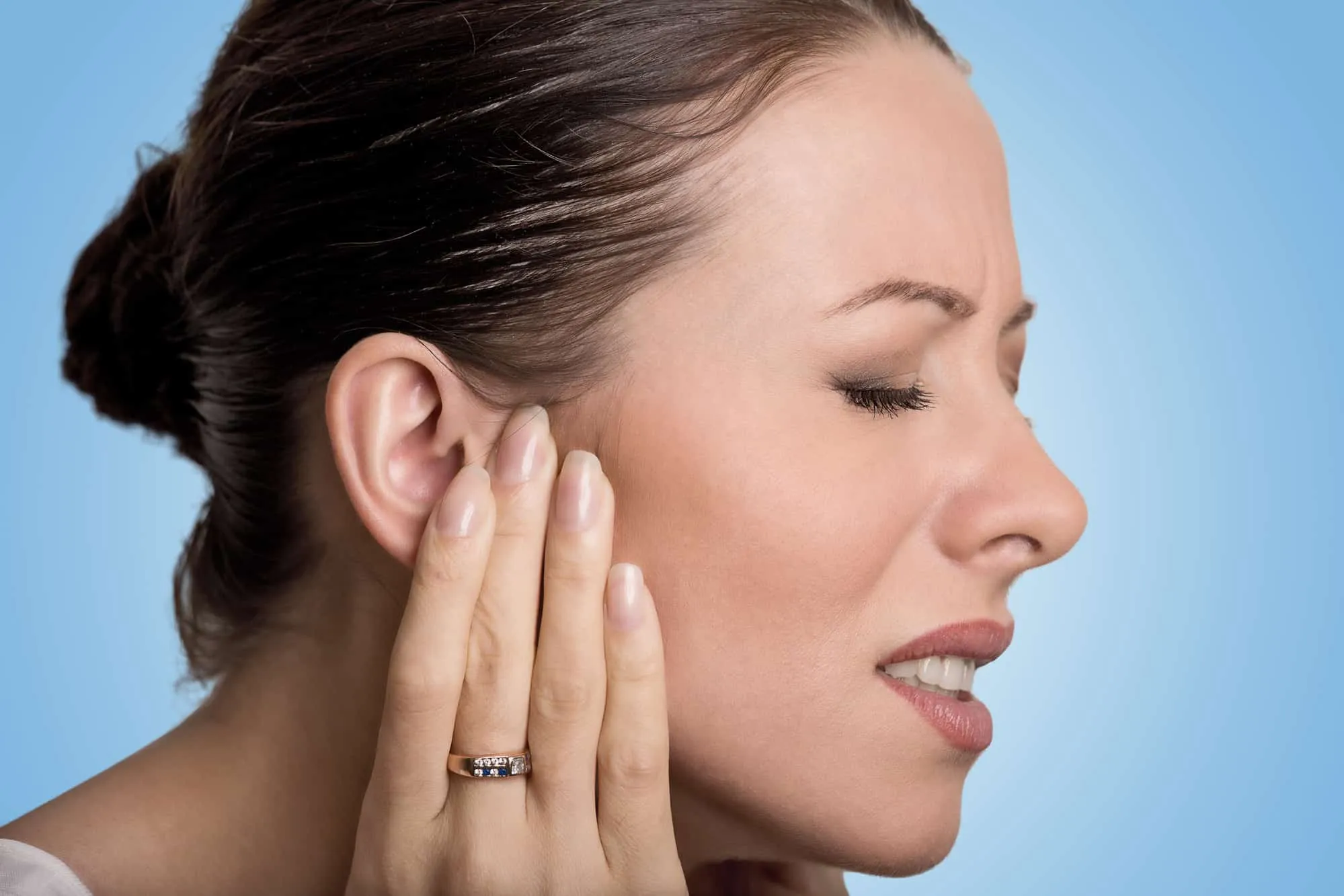Hearing sounds and noises that no one else can hear can make you feel alone, frustrated, and searching for relief. Tinnitus is the perception of sound in one or both ears without an external sound source, and millions of Americans experience it. Keep reading to learn more about tinnitus and how it may be alleviated.
Tinnitus 101
Tinnitus is when you experience ringing or other noises in one or both ears without an external source of sound present. Tinnitus may be paired with hearing loss, or it may just exist on its own. The National Institute on Deafness and Other Communication Disorders (NIDCD) estimates that approximately 10% of the U.S. adult population experiences some form of tinnitus.
Tinnitus can be a constant or intermittent sound and is most commonly described as a ringing in the ears, but can also be described as a buzzing, humming, hissing, or roaring sound. It can be both an acute (temporary) or chronic (ongoing) health issue; if your tinnitus lasts for more than three months, it is considered chronic.
The cause of tinnitus is unknown, and for those dealing with it, that can be the most frustrating part. Tinnitus is not a disease on its own; it is a symptom of some underlying condition.
Causes of Tinnitus
Although tinnitus is not a disease on its own, nor does it lead to someone developing a disease, there are some common sources that may lead to the symptoms of tinnitus. Some possible foundations of tinnitus include:
- Hearing Loss: When hearing loss occurs, your brain receives less stimulation, but your hearing nerve may fire at the rate it always has. This can cause you to hear sounds that are not there. This issue is more common in older people.
- Noise Trauma: Exposure to loud sounds, whether over time or from a single incident, can cause tinnitus.
- Head/Neck Injury: Physical injuries to the head, neck, or ears may affect nerves or areas of the brain that help you hear.
- Disease/Health Related: Some conditions, like high blood pressure, arthritis, and some autoimmune diseases may increase the likelihood of developing tinnitus.
- Medications: Certain drugs, like some antibiotics, antidepressants, and chemotherapy drugs, may cause tinnitus.
People coping with tinnitus may experience flare-ups from some lifestyle habits like drinking too much caffeine, eating a diet high in sodium, alcohol use, exposure to loud sounds, and stress and anxiety. Pinpointing the actual trigger for tinnitus can be a frustrating cycle and can have some pretty tiresome effects.
How Tinnitus Affects People
If you don’t suffer from tinnitus, you can imagine that a constant noise in your ears that no one else can hear would have some negative impacts on your daily life. If you do deal with tinnitus, you probably already know that tinnitus can affect every aspect of your being. If left untreated, tinnitus can affect:
Sleep: Not being able to fall asleep or waking up in the middle of the night from sounds in your ears can lead to sleep deprivation.
Hearing: Some people with tinnitus experience difficulty hearing what they want to hear from the world around them because of the interference from tinnitus.
Emotion: The ever present noises that tinnitus can cause may wreak havoc on your emotional well being. Stress and irritability can increase, which also serve as a trigger to increased tinnitus.
Concentration: Imagine trying to focus on reading or holding a conversation while a constant humming in your ears is present. Concentrating on anything but the noises associated with tinnitus is difficult.
While tinnitus can be a difficult condition to find cause for, it is treatable. A cure for tinnitus does not currently exist, but there are ways to manage the symptoms.
Treatment Options for Tinnitus
The first step for the treatment of tinnitus is to see an audiologist or hearing care professional, like our team at Hearing Solution Centers. They can help uncover the reason for your tinnitus and develop a treatment plan from there. Some possible options for treatment, depending on the source and severity of your tinnitus, may include:
Medical: Medicines may be used to mitigate some of the symptoms linked with tinnitus, like anxiety and depression.
Alternative: Some alternative therapies like vitamins, supplements, essential oils, magnets, acupuncture, and hypnosis may be beneficial for some people.
Sound Therapy: Playing sounds into the ears to adapt to the tinnitus or make it more manageable may be helpful. Sometimes, the extra sound drowns out the tinnitus.
Hearing Aids: Hearing aids may help when tinnitus is disruptive to your normal everyday sounds. Sound therapy can also be used with hearing aids, making it easier and more effective than a sound machine.
Education & Counseling: When tinnitus first becomes an issue, there are a lot of questions that need to be answered. Speaking with a hearing care professional (like our team!) can take away some of the stress and help you deal with tinnitus.
Hearing Solution Centers’s Approach to Tinnitus
The best way to treat tinnitus is to inform yourself about the condition and make an appointment with a hearing professional. At Hearing Solution Centers, we treat every case of tinnitus with a personalized, custom approach. No one has the same experience with tinnitus, so it’s important not to have a one-size-fits-all line of action when treating it.
At Hearing Solution Centers, we start with a comprehensive evaluation and get a very detailed background of the tinnitus from you. We will analyze the severity of your tinnitus and recommend treatment options that fit into your lifestyle and address your personal needs and preferences. We want your treatment plan to work for you, and without a customized approach, patients are usually not successful.
Watch the video below about tinnitus and schedule your appointment with Hearing Solution Centers today!

